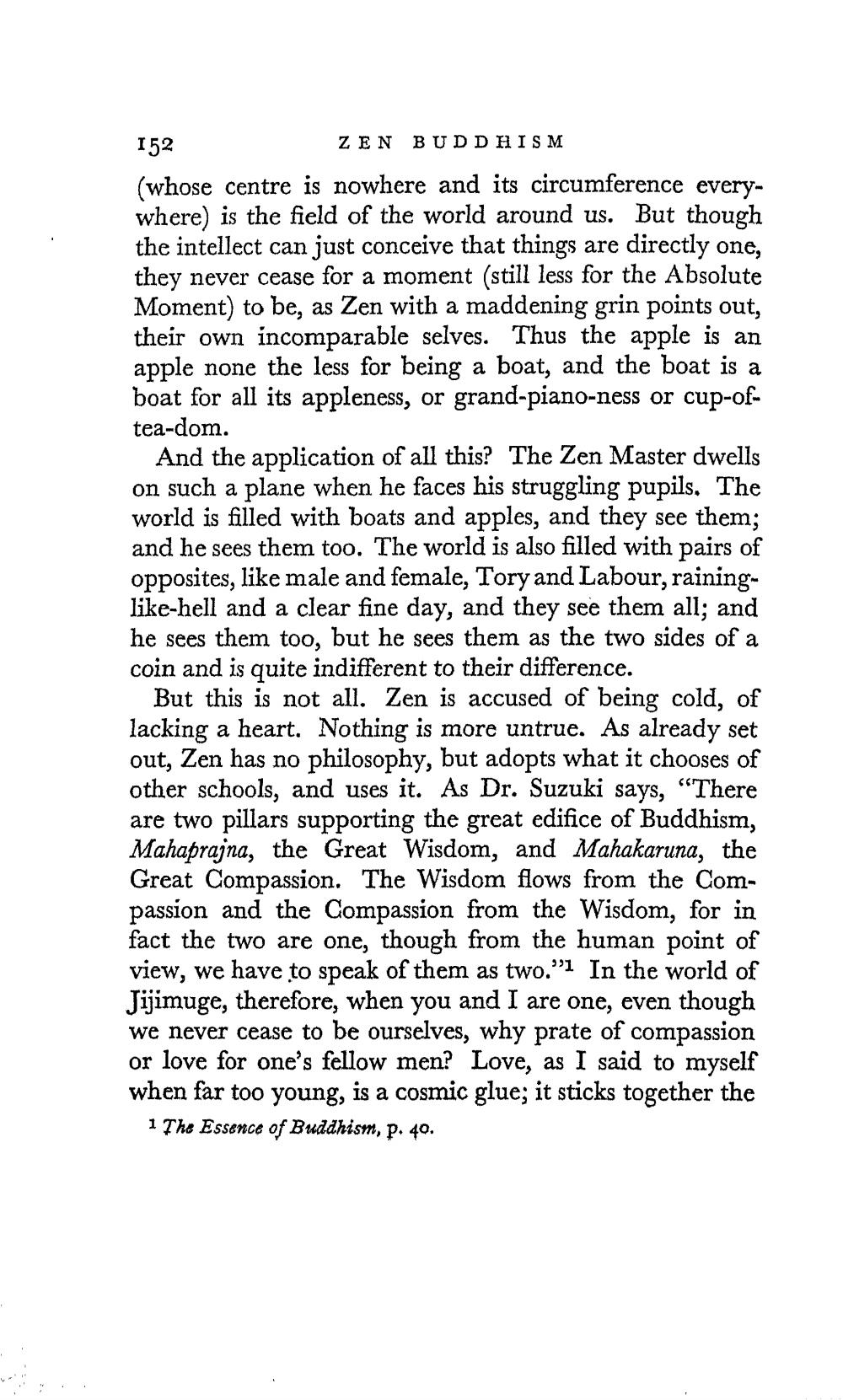________________
152
ZEN BUDDHISM (whose centre is nowhere and its circumference everywhere) is the field of the world around us. But though the intellect can just conceive that things are directly one, they never cease for a moment (still less for the Absolute Moment) to be, as Zen with a maddening grin points out, their own incomparable selves. Thus the apple is an apple none the less for being a boat, and the boat is a boat for all its appleness, or grand-piano-ness or cup-oftea-dom.
And the application of all this? The Zen Master dwells on such a plane when he faces his struggling pupils. The world is filled with boats and apples, and they see them; and he sees them too. The world is also filled with pairs of opposites, like male and female, Tory and Labour, raininglike-hell and a clear fine day, and they see them all; and he sees them too, but he sees them as the two sides of a coin and is quite indifferent to their difference.
But this is not all. Zen is accused of being cold, of lacking a heart. Nothing is more untrue. As already set out, Zen has no philosophy, but adopts what it chooses of other schools, and uses it. As Dr. Suzuki says, “There are two pillars supporting the great edifice of Buddhism, Mahaprajna, the Great Wisdom, and Mahakaruna, the Great Compassion. The Wisdom flows from the Compassion and the Compassion from the Wisdom, for in fact the two are one, though from the human point of view, we have to speak of them as two.". In the world of Jijimuge, therefore, when you and I are one, even though we never cease to be ourselves, why prate of compassion or love for one's fellow men? Love, as I said to myself when far too young, is a cosmic glue; it sticks together the
1 The Essence of Buddhism, p. 40.




